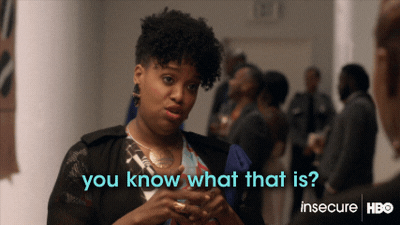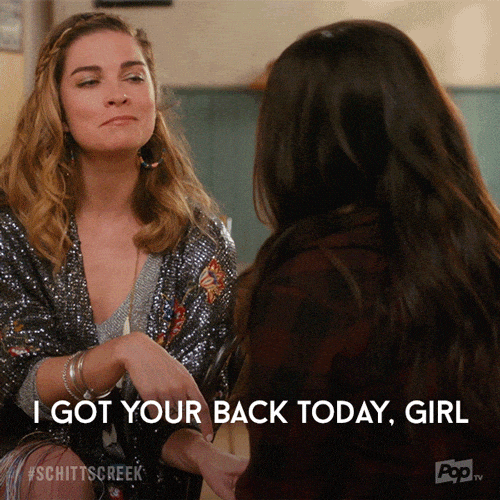Breakups are hard. Even when we know the relationship has run its course, the breakup can still be tough. It is no wonder we stay in relationships longer than we should, telling ourselves to just stay positive because things really aren’t “that bad” or that things will get better with time. If you dread the thought of initiating a breakup, be assured that you are not the only one. I wish I could find a step-by-step guide for smooth breakups that have no hiccups (hard feelings, tears, awkwardness, etc.), but no guide or plan gets the 100% guarantee seal. But I do believe there are some important choices we can make that model responsibility, respect, and maturity when it is time to breakup.

Choose to be solid in your decision
I have been in conversations, primarily with young women, who have rightly made the decision to breakup with someone. The relationship was abusive on some level, the two of them had values that were night and day different, or she realized she cared about that person as a friend. These were all legit reasons for her to be making a breakup decision. So of course, as a trusted friend and confidant, I was there to support her. You can imagine how surprised I was when I called or texted her and found out she decided to stay in the relationship.

When it came time to break off the relationship, she chose to continue it, despite knowing deep down the relationship wasn’t going to last long term.
Why does this happen so often? One reason is breakups are highly emotional events. We get into “the conversation” and we follow our feelings and respond to emotions. Any sound reasoning that we had settled on gets clouded and disregarded. If we know it’s time for a relationship to end, we should choose to be solid in that decision. If we are not solid, we are more vulnerable to the emotions of the moment and there is an increased likelihood of being persuaded to stay in a relationship that isn’t good for us.
Choose face to face
I know you are probably thinking this seems like a no-brainer, but breaking up face to face is one option among many, primarily because of the virtual nature of our culture. You probably know people who have ended relationships via text message. Why choose to dump someone without being face to face? The most obvious reason is because it is the easy way out. There is no looking at someone in the eyes. There is no pressure to respond right away to his/her reactions to the news. The chances for awkwardness are slightly less. These are just a few reasons. But doing the easy thing is not always the right thing.
The choice to be face to face communicates we respect and value that person as an individual despite the disagreements and differences that have led to the breakup. We can respect others even when we don’t see eye to eye with them. The choice to be face to face also reflects emotional maturity. Sure, it will be uncomfortable, but many times, it’s in the uncomfortable situations that we grow.

I will mention that there may be valid reasons, such as abuse and violence, when face to face may not work. In this case, seek support from trusted mentors, caregivers, or professionals.
Choose courage
The phrase “choose courage” in reference to breaking up could mean a lot of different things. When I use this phrase, I am specifically talking about you finding courage to break up, not finding someone else to be a middle man or go-between person. People actually do this. They get a friend or family member who knows all the relationship details to do the breaking up for them. Transparent moment…I did this a few times in middle school. But it was middle school! If we feel it’s time to break up, then we need to own that decision. It is not someone else’s decision. It is ours. Because of this, we need to choose courage and be the one who steps up to have the conversation.
Choose the right tone
I can’t emphasize enough how important it is to check our tone when we are facing difficult conversations. When it’s time to break up, I believe there are wrong tones and right tones. Wrong tones look and sound aggressive, defensive, argumentative and involve blaming, name-calling, and threatening (to name a few). It’s the blood boiling kind of tone and body language. Something that is already difficult intensifies, adding even more difficulty with more hard feelings and decreased chances of a peaceful resolution. On the other hand, right tones look and sound calm, approachable, open to understanding, respectful, and confident. If we initiate a breakup conversation with our boxing gloves on, expect the conversation to get ugly. If we choose a non-confrontational tone, it can make all the difference.
Choose to have support
It is good to surround ourselves with people who love and support us. This is a significant human need that everyone needs to have filled each and every day. So it explains why having support during a breakup is a responsible choice. Breakups can be emotionally draining, and our support people help keep us grounded, keep us encouraged, keep us focused, and keep us sane. Hopefully we all have people in our lives that we can call on no matter what, and if it’s time to break up, get those people in your corner. (If you need some extra support, you can text or call us at Your Choices!) Let them know what is going on. Let them know you may need someone to talk to. They may not hold your hand while you have a breakup conversation, but they can be supporting you from the sidelines.

Choose to release
The choice to release is powerful. In some cases, not all, we can break up with someone but still have the lingering desire or expectation to be connected to them in unhealthy ways. Let me list some examples. We may still hope and expect them to contact us daily. We may feel jealous or envious when we find out our ex is dating someone else, so we try to rekindle a connection to get the attention back on us. We may secretly hope that his or her next relationship is a terrible one. We may use mutual friends as “spies” who keep us in the loop about everything going on with our ex. I could keep going. But the point is this: if we are no longer in a relationship, these expectations are unrealistic and unhealthy. If we choose to breakup, we need to make the choice to release that person from our grip. We recognize we are no longer their top priority. They no longer answer to us. They no longer have to send us a text every day. They are free. They are allowed to move forward in life. When we choose to release, we are hoping the best for them and want to see good things for them.

I share these choices with you not because I have spent hours and days researching breakup skills, but rather because I have spent time with real people –also, because I have experienced some difficult conversations, breakups included. When it’s time to break up, there are no step-by-step instructions, but these choices can set the stage for a respectful, responsible, and mature conversation.
Mary is on staff at Your Choices Randolph. She has had extensive experience working with youth. If you are navigating a breakup and need some additional support, call or text Your Choices Randolph at 336-629-9988.

Recent Comments